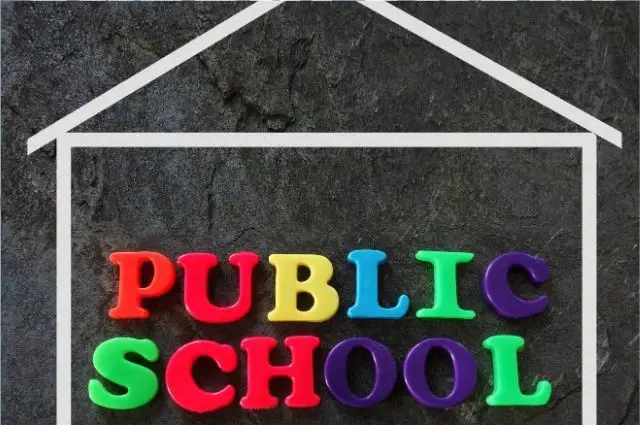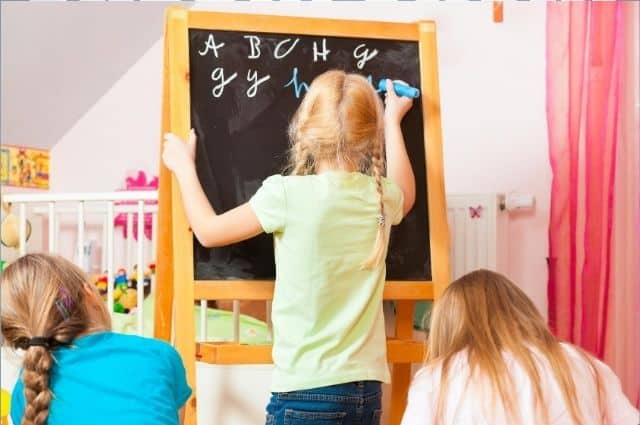Is Homeschooling Better Than Public School?
In the face of school closures due to the coronavirus pandemic’s contingency, both parents and children face the enormous challenge of adapting to Homeschooling. For families who already practice Homeschooling, this transition will not represent much of a change.
However, for those families whose children are traditionally educated, these quarantine weeks have certainly been challenging.
It’s also common for children and teens to not know what to do with themselves without their usual schedule and routines. Also, it is normal for them to be nervous about their grades, homework, or academic performance, as well as learning without being distracted by their environment.
But the debate goes much further. Because Homeschooling is a learning option that has emerged in the U.S. and is becoming increasingly popular. In the modality, the family chooses a different formation for their children, among other reasons, because they were dissatisfied with the educational system.
According to the National Center for Education Statistics, in the United States, the number of homeschoolers grew 74%: from 850,000 in 1999 to 1.5 million in 2007. It is currently estimated that there are more than 2 million. Although there are no official records in Argentina, according to online sites that gather these families, it is estimated that there are about 2 thousand throughout the country.
Schooling is not only about learning content but also about the experience of being able to assimilate situations that make for socialization. And about Homeschooling, it is justified in that “in the case of families who, for example, must emigrate from the country and do not believe it is necessary to include their children in the educational system for a short time.
But he objected to “making an opposition to the school system, no matter how much criticism there is of the system or a particular school.
“The important thing is that schooling is not only about learning content but also about the experience of assimilating situations that lead to socialization, where the child is not always the best or only one and does not always win the game.
Is Homeschooling Easier Than Regular School?
Today, these three characteristics are still the main ones in India, but it is clear that they are for the State’s education. That in public schools -which depends on the State for their maintenance and operation- education must continue to be secular, free, and compulsory.
Still, in private schools, it is neither free nor secular. And if one decides to educate at home, it becomes even laxer the way to carry out the education of our children.
Now, how legal is it not to take our children to school? This is a question that haunts all parents who are about to decide and who don’t know if they’ll be getting into trouble. Add to that all those opinions about it being a crime not to take children to school, that there are jail and fines. Is all this true? No, it’s not.
The laws that regulate education in India establish its obligatory nature and also the obligation of parents to take their children to school; but they do not establish any sanctions in this regard, that is, neither in the Federal Penal Code, nor any other code, law or regulation does a crime appear called “not taking your children to school,” it does not exist and, since it does not exist, it is not a crime, it cannot be punished.
Why is Homeschooling Better Than Public Schools?
Education has always been an issue that has stood out in political discourse as one of the basic elements of democracy. It seeks to influence the culture and convictions of young people. In these terms, it is understandable that Constitutions are usually concerned with designing a country’s education system.
In India, this constitutional commitment resides in the Constitution, which establishes the basis for achieving two objectives: an individual one that translates into the free development of the personality, and a collective one that consists of democratic coexistence.
The Indian Constitution has been reluctant to shape the rights of a performance nature in terms of subjective law. However, in the case of education, the Indian Constitution included the educational model in its catalog of fundamental rights. In that sense, the Indian Constitution enshrines the right to education in a double aspect, as a fundamental right and as a public duty.
However, the Constituent’s desire to give the right to education this status is based on the fact that this is a right that has been historically claimed for centuries. It thus seeks to satisfy the needs and aspirations of the individual to be educated, achieving full development of his or her personality, especially about the minor, who is a particularly vulnerable individual who depends on a parent or guardian to cover his or her needs and achieve full development.
Therefore, it is a fundamental right that is reinforced through a duty to receive education, with the law implementing a series of duties to ensure its exercise.
The constitutional configuration of education is composed of a double aspect: on the one hand, it is unrestricted freedom, and on the other, it is a task of the State. Both aspects must coexist since neither the State can claim a monopoly on education nor private individuals can obstruct the State to protect the free development of the personality and democratic coexistence through education.
These same purposes of protecting the free development of the personality and democratic coexistence make the fundamental right to education intimately linked to human dignity. Thus, given its high importance, the holders of this right are individuals who have decided to be homeschoolers. In this context, one can say Homeschooling is way more effective than schooling in public schools.
Is Homeschooling Safer Than Public Schooling?
Just three years ago, Guadalupe Román and her husband, four children, were faced with a crisis. Then, their eldest daughter, a 14-year-old high school student, was upset from school, lost all interest in learning, and was practically at a loss.
They too were dissatisfied, did not see the committed teachers and principals, nor did they consider the environment in which their daughter was functioning to be healthy; they knew it was time to act, although they had no idea how to do so until a talk with a friend changed their perspective.
His friend told them about an educational trend called Homeschooling, which abandons traditional teaching at school and brings it home, placing parents the main promoters of their children’s learning.
Guadalupe and her husband listened carefully to every word about the alternative. They then set out to investigate further, until they made a life-changing decision: to bet on their daughter continuing her studies this way.
And things, they say, went well, to such an extent that today not only her oldest daughter, now 17, is going to homeschool, but also two of her other children, an 11-year-old girl, and a 14-year-old boy, as well as the youngest in the family, a five-year-old who is now in kindergarten, also aims to take this path.
Does Homeschooling Cost Less Than the Public School?
There are a small fraction of California students who do not attend school, at least not in the conventional sense. Homeschooled children participate in an educational program coordinated by their parents, like everything that involves only a small fraction of children, when you multiply that fraction by the population of California, a large number.
Because school attendance is mandatory, families must meet certain requirements to remove their children from school legally. The Homeschooling Association of California advises families on setting up their private school or joining a private satellite program (PSP).
Religious issues are very influential in the desire of some families to withdraw from public schools. Until recently, these issues dominated the demand for Homeschooling. In a December 2012 survey, 16 percent of parents of homeschooled children cited religion as the primary reason for choosing Homeschooling.
But the Internet has made it easier for families to learn about homeschooling options, and Homeschooling is a growing movement. Computer-based instruction and online resources are changing this dynamic, making Homeschooling an increasingly realistic option for more families and higher grades.
Is Homeschooling The Future?
Today we see new forms of higher education appearing: open mass internet courses (MOOCs), collaborative learning, open and flexible curricula, etc. Possibilities are emerging to acquire a university education even without physically attending a university. From the heights of the Peruvian highlands, I can take courses from the world’s best universities.
And instead of having to complete a prescribed and rigid program, the possibility of receiving a personalized education arises, by choosing from a wide offer exactly those courses that correspond to one’s professional needs. These possibilities and perspectives excite me, but at the same time, I ask a few questions:
What skills do these new forms of education require from the students who participate?
And are our students prepared for this?
The new forms of higher education require the student a high degree of independence, decision-making ability, self-discipline, and creativity. These are all abilities and attitudes that are not cultivated in the existing school system.
In Conclusion
Now, I want to clarify that our method is not exactly a “home school.” Some families educate their children at home, but they do so with the same methods as the school system, with the same textbooks that cut knowledge into small pieces, with the same rigid curriculum that does not leave them any freedom.
They also have quite good results, but they still reproduce many of the school system’s problems. I would say that they take advantage of a part of the potential that home education has, but only a part. That’s how our children learned.







